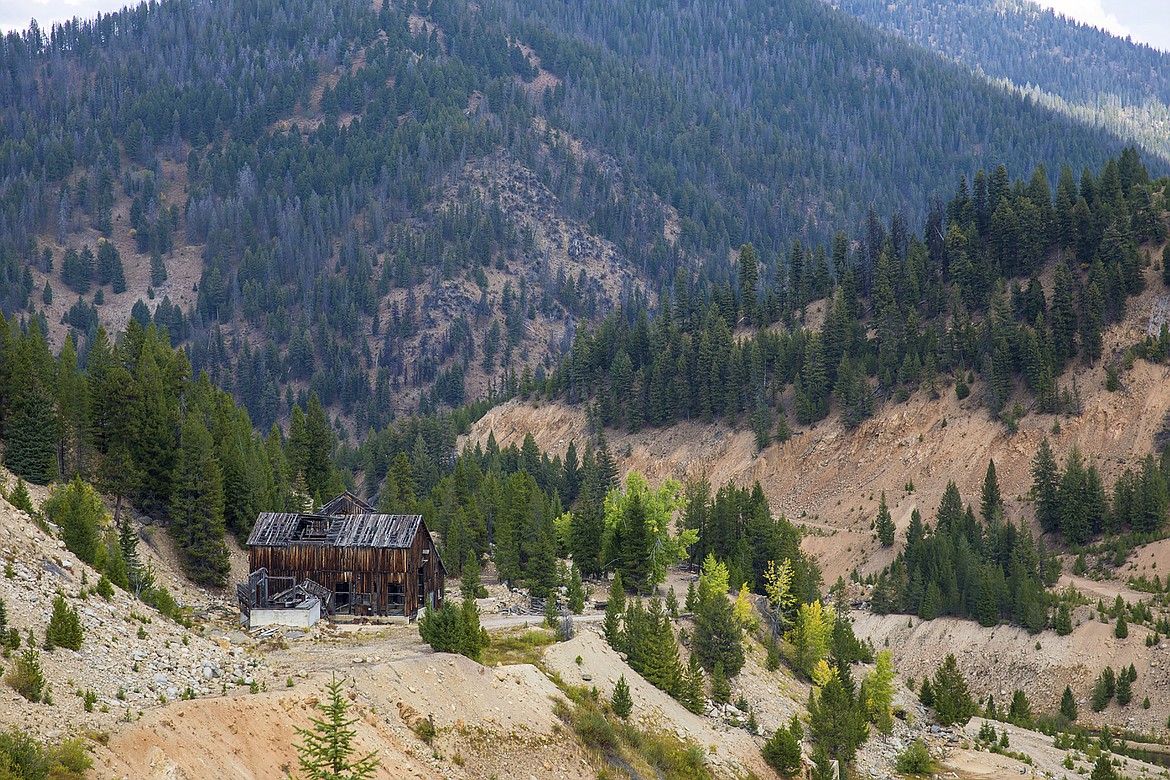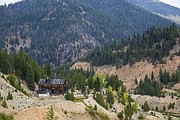Canadian mining company sues US over Idaho water pollution
Keith Ridler | Hagadone News Network | UPDATED 5 years, 5 months AGO
BOISE, Idaho (AP) — A Canadian company seeking U.S. approval for three open-pit gold mines in central Idaho is suing the U.S. government, contending U.S. officials are allowing water pollution at the already heavily mined site in violation of environmental laws.
British Columbia-based Midas Gold filed the lawsuit Tuesday in U.S. District Court against the U.S. Forest Service under the Clean Water Act's citizen enforcement provision. The area contains important salmon habitat that the company says it will restore if allowed to mine.
Midas Gold, which has yet to do any mining in the area but has claims, is itself being sued by the Nez Perce Tribe over the same pollution caused by past mining companies.
The company said that if the tribe were to win, the result would be a legal conflict between a court injunction and a permitting process involving land the company doesn't own. The company also contends it could have to pay to clean up pollution it didn’t cause.
The company is asking the federal court to hold the U.S. Forest Service responsible for the pollution at the mining area. The company is also requesting that its lawsuit against the U.S. be combined with the tribe’s 2019 lawsuit against the company.
“This action was a necessary step to protect Midas Gold from being held responsible for alleged water pollution from lands owned and managed by the U.S. Forest Service,” Midas Gold CEO Laurel Sayer said in a statement.
The tribe has opposed Midas Gold’s mining plan for various reasons, including about 80 miles (130 kilometers) of river with good salmon habitat below the mining area that could be put at risk by new mining.
The company won’t stop the pollution “unless the federal government approves their proposed mining plan that will make them billions of dollars and significantly increase the mining disturbances at the Site, threatening our treaty rights and resources for decades to come,” Nez Perce Tribe Chairman Shannon F. Wheeler said in a statement.
The lawsuit comes less than a week after the Forest Service released a draft environmental assessment of Midas Gold's plans to mine the area. A 60-day comment period is being held on the draft, after which the Forest Service will select from among five alternatives for potential mining.
The U.S. Department of Justice, which defends federal agencies in lawsuits, didn’t respond to an inquiry from The Associated Press sent through its online media portal.
Midas Gold says the area 40 miles east of McCall and on the western edge of the Frank Church-River of No Return Wilderness contains more than 4 million ounces of gold, and that the mines will create 500 jobs for up to 25 years. The company also says it plans extensive restoration work as part of its mining plan will take care of the current pollution problem.
Midas Gold's proposed project includes about 500 acres (200 hectares) of patented mining claims and 2,900 acres (1,200 hectares) of unpatented claims on the Payette National Forest and Boise National Forest.
Mining in the area dates back more than a century and has resulted in two open pits, including one that has been blocking a salmon spawning stream since the 1930s. The site also has extensive tailings left from mining operations, waste rock dumps and open tunnels that are the source of elevated levels of arsenic, cyanide and mercury.
“Discharges from these locations undermine Midas's efforts and vision to restore the site and environment concurrent with all future mining phases,” under its mining and restoration plan, the company said in the lawsuit.
Previous mining companies walked away, leaving cleanup to U.S. taxpayers. The U.S. Environmental Protection Agency has spent about $4 million since the 1990s restoring habitat, work that would be mostly removed with new mining.
Opponents also say the mining area will be greatly expanded, destroying additional habitat for salmon, steelhead and bull trout. They also worry that U.S. taxpayers will get stuck with clean-up costs when mining ends.
ARTICLES BY KEITH RIDLER
US to bolster firefighter ranks as wildfires burn year-round
BOISE, Idaho (AP) — U.S. wildfire managers have started shifting from seasonal to full-time firefighting crews to deal with what has become a
US to bolster firefighter ranks as wildfires burn year-round
BOISE, Idaho (AP) — U.S. wildfire managers have started shifting from seasonal to full-time firefighting crews to deal with what has become a
Idaho special session for Texas-type abortion law unlikely
BOISE, Idaho (AP) — Idaho lawmakers being called back to the Statehouse to pass a law similar to one in Texas banning most abortions is not likely, top elected officials said Thursday.



